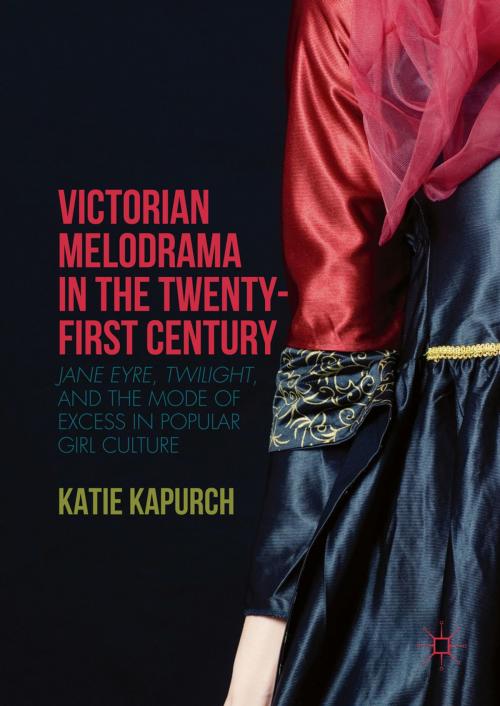Victorian Melodrama in the Twenty-First Century
Jane Eyre, Twilight, and the Mode of Excess in Popular Girl Culture
Fiction & Literature, Literary Theory & Criticism| Author: | Katie Kapurch | ISBN: | 9781137581693 |
| Publisher: | Palgrave Macmillan US | Publication: | August 24, 2016 |
| Imprint: | Palgrave Macmillan | Language: | English |
| Author: | Katie Kapurch |
| ISBN: | 9781137581693 |
| Publisher: | Palgrave Macmillan US |
| Publication: | August 24, 2016 |
| Imprint: | Palgrave Macmillan |
| Language: | English |
This book examines melodramatic impulses in Charlotte Brontë’s Jane Eyre and Stephenie Meyer’s Twilight Saga, as well as the series' film adaptations and fan-authored texts. Attention to conventions such as crying, victimization, and happy endings in the context of the Twilight-Jane Eyre relationship reveals melodrama as an empowering mode of communication for girls. Although melodrama has saturated popular culture since the nineteenth century, its expression in texts for, about, and by girls has been remarkably under theorized. By defining melodrama, however, through its Victorian lineages, Katie Kapurch recognizes melodrama's aesthetic form and rhetorical function in contemporary girl culture while also demonstrating its legacy since the nineteenth century. Informed by feminist theories of literature and film, Kapurch shows how melodrama is worthy of serious consideration since the mode critiques limiting social constructions of postfeminist girlhood and, at the same time, enhances intimacy between girls—both characters and readers.
This book examines melodramatic impulses in Charlotte Brontë’s Jane Eyre and Stephenie Meyer’s Twilight Saga, as well as the series' film adaptations and fan-authored texts. Attention to conventions such as crying, victimization, and happy endings in the context of the Twilight-Jane Eyre relationship reveals melodrama as an empowering mode of communication for girls. Although melodrama has saturated popular culture since the nineteenth century, its expression in texts for, about, and by girls has been remarkably under theorized. By defining melodrama, however, through its Victorian lineages, Katie Kapurch recognizes melodrama's aesthetic form and rhetorical function in contemporary girl culture while also demonstrating its legacy since the nineteenth century. Informed by feminist theories of literature and film, Kapurch shows how melodrama is worthy of serious consideration since the mode critiques limiting social constructions of postfeminist girlhood and, at the same time, enhances intimacy between girls—both characters and readers.















